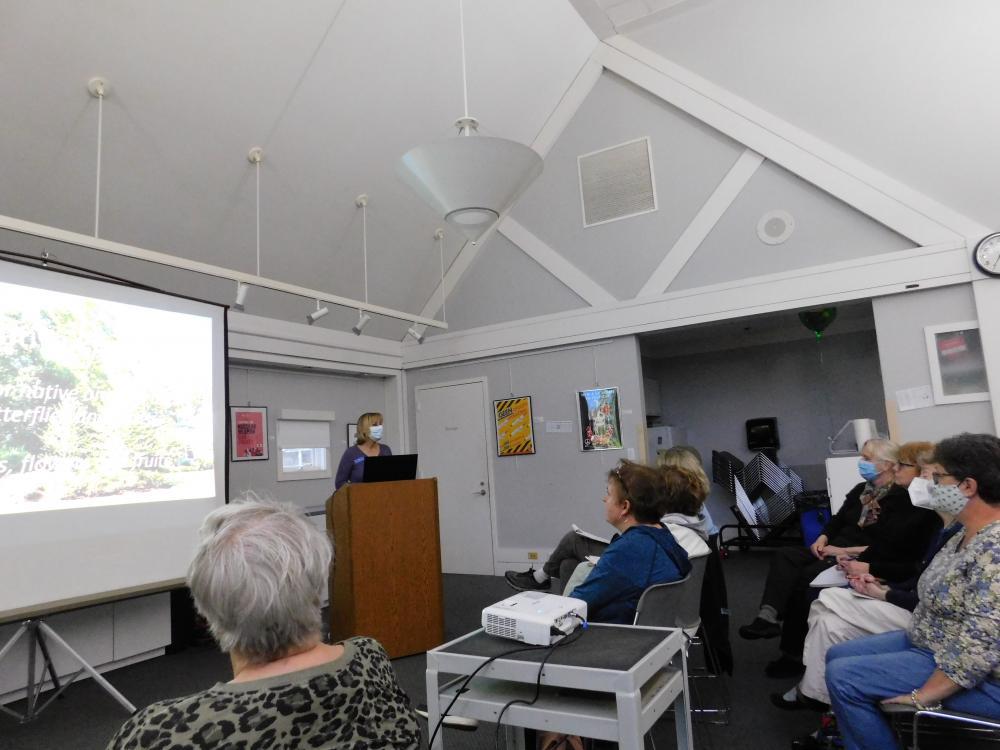Want critters in your yard? Try planting native plants
More than 40 gardening enthusiasts gathered at the Wareham Free Library on April 13 to learn how plants in their yards can support local wildlife.
“Without plants, we have no animals,” said Joy Marzoff of the Joys of Nature. Marzoff is a longtime nature educator who found an interest in plants through her passion for wildlife.
“Our native animals are adapted to native plants,” she said. “It’s like pie a la mode — each is nice on its own, but they’re better together.”
She explained that native plants provide a host of benefits to animals and insects, including food, shelter, room to nest and places to hide from predators. American Cranberry and flowering crabapple provide food and shelter. Columbine is a favorite of hummingbirds.
Marzoff said native plants are not only good for helping local critters, they are easier to maintain than non-natives, which can require fertilizer or frequent watering.
“Native plants that are established oftentimes don’t need our help,” Marzoff said, noting that an over-enthusiastic application of compost, for example, can kill a plant.
She recommended that people look to include a variety of plants in their yards of varying heights and types.
“The key is diversity,” Marzoff said.
To support butterflies, for example, one might wish to plant species that support both caterpillars and butterflies, which need different food. Milkweed is great for monarch caterpillars, while butterfly weed supports the adults.
“Native plants attract a range of insects, including some that hunt pests like mosquitos and gnats,” Marzoff said. She noted that dragonflies are fierce predators that can kill more than 100 mosquitos in a day.
Pesticides, including treatments for mosquitos, can wipe out helpful insects like dragonflies too, she said.
She encouraged attendees to do their own research and work to educate neighbors. Together, pesticide-free backyards planted with native species can support more wildlife than any individual’s property, she said.
Marzoff said her best advice to those looking to dive into the world of native plants is to do research and ask questions. Among her favorite resources are Ted Elliman’s book “Wildflowers of New England” and the Native Plant Trust’s plant finder, which includes a database of native plants that gardeners can search based on the specifics of their garden.
Marzoff will return to the Wareham Library in May for a talk about butterflies.











